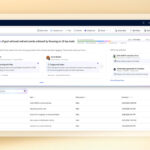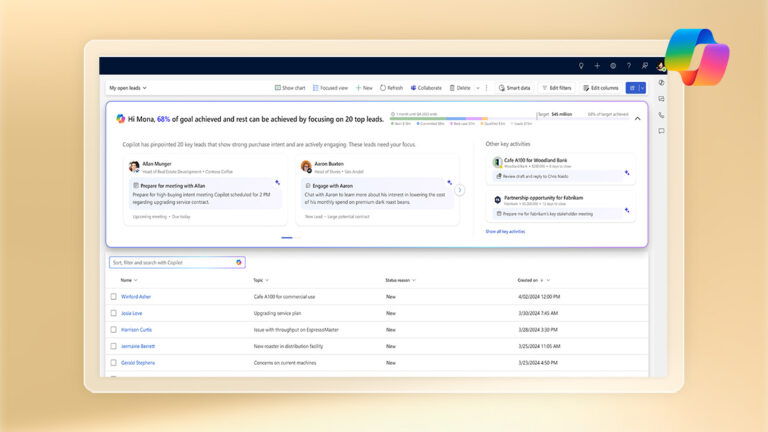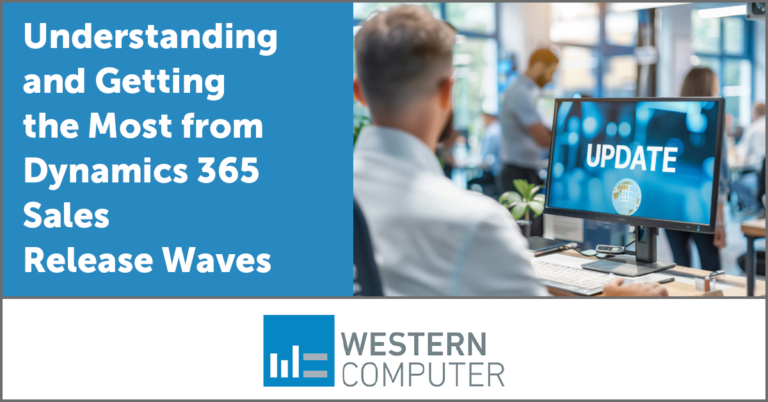Salesforce professionals love gaining certifications – they are career milestones career that prove you know what you are talking about.
Salesforce certifications involve an investment of time and energy (and money!) – which is why we’ve compiled the answers to the most frequently asked questions when it comes to Salesforce certifications. Let’s get started!
1. What Are Salesforce Certifications?
Salesforce certifications are a seal of approval that you have knowledge of a specific Salesforce product or discipline. The exam outlines can help fill in knowledge gaps around features you may not have come across yet.
Certifications can potentially be used as leverage if you are looking for a more senior position internally or a job in another company.
2. Which Salesforce Certification Should I Get?
Which Salesforce certification you take will depend on where you want your career to head. There are multiple pathways depending on whether you’re interested in low-code careers, want to pursue a pro-code career, or perhaps reaching architect-level is your goal.
Our Salesforce certification map outlines where you can take your career, so you can decide which certification pathway you’d like to follow. Take prerequisites into consideration, in other words, certifications you may need to gain before sitting your target certification exam. You’ll find the recommended experience and prerequisite certifications you will need to progress to the next stage.
3. What Is the Easiest Salesforce Certification?
‘Easy’ is a misleading word here. All Salesforce certifications require time and effort to pass. There are certifications that are considered gateways to becoming a certified professional, based on your level of experience. These are:
- Salesforce Associate: Validates and empowers those with foundational Salesforce knowledge. This knowledge includes understanding what a Customer Relationship Management platform is for, what business needs it solves, and how the Salesforce product suite can be used to transform and automate business teams and processes. (Recommended experience: 0-6 months of Salesforce experience.)
- Salesforce Administrator: Considered the baseline credential for any admin. Passing this exam will showcase your knowledge of Salesforce features and best practice configuration. (Recommended experience: 6+ months of experience as a Salesforce Administrator.)
- Platform Developer I: A key exam if you are on the path to becoming a Salesforce Developer. The framework of knowledge gained by preparing for this exam is beneficial for other roles, including admins, architects, and more. (Recommended experience: generally has 1-2 years of experience as a developer and at least six months of experience on the Lightning Platform. But don’t let the “Experience” section scare you off – you can gain experience and exposure to these topics through your studies.)
- Pardot Specialist: Designed to get you up to speed as a Pardot (Account Engagement) power user. A feature-focused credential, including lead scoring, email marketing, and lead generation. (Recommended experience: 6-12 months of Pardot experience.)
- Marketing Cloud Email Specialist: Demonstrate your knowledge of email marketing best practices using the Marketing Cloud Email application (Email Studio). An essential certification before progressing further on the Marketing Cloud certification pathway. (Recommended experience: 6-12 months of Marketing Cloud Email Studio experience.)
Make no assumptions – these certifications will test your knowledge thoroughly. Questions have become increasingly scenario-based, for example, “if [requirement] and if [scenario], what’s the best option for the organization?”
Most certification exams have four answer options (some less, some more). Looking at the answer options, you may be able to rule out, say, two wrong answers out of four options. This leaves you toying with the remaining two – in some cases, both are technically possible, but what the question is asking you is to determine which is the best practice option. This is how certification exams actually test how capable you are at applying your knowledge in real life.
4. Which Salesforce Certification Is the Best?
Again, there’s no straightforward answer! Which certification is best will depend on where you currently are in your Salesforce learning journey and where you aim to get to. Ask yourself how you define ‘best’ – is it to…
- Increase your earning potential?
- Pursue in-demand skills?
- Improve how you perform in your current role?
5. How Do I Get Salesforce Certifications?
Start your certification study journey the right way, and reach success by walking through the following steps:
- Decide which certification (or certification pathway) you’d like to follow. In some cases, you need a full view of the Salesforce certification landscape to take prerequisites into consideration – in other words, certifications you may need to gain before sitting your target certification exam.
- Start your certification study by first going to the official exam guide on Trailhead for your chosen certification.
- Research for resources, such as our collection of certification guides on SFBen.com – written by people in the community who have been through the whole experience themselves.
- Book your certification exam through WebAssessor. It’s all too easy to procrastinate about taking your Salesforce certification. Time is the most valuable commodity to a professional, and delaying booking your exam will only trick you into “moving the goalposts”.
- Search for legitimate practice questions. A growing number of practice exam packs on SFB Courses will give you the extra confidence boost that you’re ready to take the exam or pinpoint the topics you need to brush up on! Never use exam dumps – these are a violation of Salesforce’s Credential and Certification Program Agreement.
If you are interested in learning more, check out the articles below:
6. How Long Does It Take to Get a Salesforce Certification?
How long is a piece of string?! By that, we mean the length of time to get a Salesforce certification is dependent on your own situation. Factors include your experience in a related role, previous transferable experience, the time you can dedicate to study, your study strategy, and the resources available for your target certification.
- Experience in a related role: Clearly, if you have been working in the role that your target certification tests, then you are going to have a big ‘leg up’ knowing many concepts and practices already.
- Previous experience: This is also not to be discounted! For example, if you are studying for the Marketing Cloud Email Specialist exam and you have five years of experience as a marketer, you will be able to transfer some of that knowledge into the exam. The same can apply to those with previous experience in different industries when working towards becoming certified in Salesforce industries (nonprofit, education, etc.)
- Time dedicated to studying: Most people will spend time out of their free time to study toward certification. Setting aside one or two hours in the evening or dedicating chunks of time over the weekend are commonplace. If you’re lucky, your employer may be generous enough to give you the freedom to study during work hours; however, it’s not common with the demand that Salesforce professionals have for their skills in an organization.
- Study strategy: I would like to emphasize this factor in particular. When approaching certification study, the amount of content to cover can be overwhelming. A good trick is to start with the sections that have the highest weightings and work your way down. This is so that you will be most prepared to answer the questions on topics that will come up more frequently in the exam. There are other tricks to maximize how you can absorb knowledge on the topic – you’ll find many tips like these in our collection of certification guides on SFBen.com.
- Resources available: Due to the varying popularity of some certifications over others, you may find plenty of resources for one certification and less for another. Pretty much all certifications have ‘preparation’ trails on Trailhead to walk you through; however, you need to extend your study beyond just a single source of information. Third-party blogs contain a wealth of information that may re-explain a topic that makes it ‘click’ for you. We list our favorite resources in our collection of certification guides on SFBen.com.
As a rough guideline, set yourself at least one month of consistent study. If you can dedicate more time and have previous experience, you may find that two weeks is sufficient. Just, please, don’t burn out!
7. How Many Salesforce Certifications Are There?
There are 40+ certifications out there (and more are added every year). Over time, Salesforce certifications are being launched for a more diverse range of roles around the ecosystem – for example, the newest certifications have included Business Analyst, Strategy Designer, and UX Designer.
8. How Much Do Salesforce Certifications Cost?
The majority of Salesforce certifications cost $200, with others priced at $400; however, the Certified Technical Architect certification costs $6,000. If you fail, you must pay to retake the exam. Retake fees are roughly 50% of the initial certification cost.
You’ll find a full breakdown of which certifications are in which price bracket in the guide below:
9. How Can You Add a Salesforce Certification to Linkedin?
To add a Salesforce Certification to Linkedin, head to your profile and scroll down to the “Licenses & certifications” section. Click on the “+” icon.
Search for “Salesforce certified…” and select your credential from the dropdown list. If it does not appear, go to your Trailblazer.me profile and copy/paste the full name of the certification.

For the issuing organization, add “Salesforce” and complete the issue date (month/year you achieved the certification). Leave the expiration date blank.
Optionally, you can find your credential ID on the certification you received upon passing the exam.

10. How Can You Verify Salesforce Certifications?
There are official ways to allow others to confirm that you indeed obtained those certifications. Your Trailblazer.me profile will showcase your current and past certifications (example below, viewable if you are logged in to Trailhead).

The verification page on Trailhead offers the option to verify someone else’s certifications using their full name or email address.

11. How Long Does a Salesforce Certification Last?
Salesforce certifications do not expire – unless you fail to maintain them!
Maintenance is due at different periods during the calendar year. These are aligned with Salesforce’s three releases each year (Spring, Summer, and Winter). If there have been significant product updates relating to your credential, you will be asked to complete a free maintenance module on Trailhead, which is ‘open book’ (i.e. not sat in an exam setting). How regularly this happens depends on the certification.

When Salesforce requests you take a maintenance exam, you will be notified by email. Don’t panic – you have plenty of time to take those maintenance modules, and you will only need to set aside 20 minutes to 1 hour.

Your Trailblazer.me profile will showcase your current and past certifications. Not only is it a public way for others to confirm that you obtained certifications – but it also doubles as a way for you to check if any maintenance has to be completed.

Summary
So, if you’re looking to gain your next Salesforce certification, it’s important to figure out which path to take. Don’t forget to do some research and gather resources before booking your exam. Hopefully, this article answers most of your questions and helps you determine your personal Salesforce certification pathway. Good luck!











